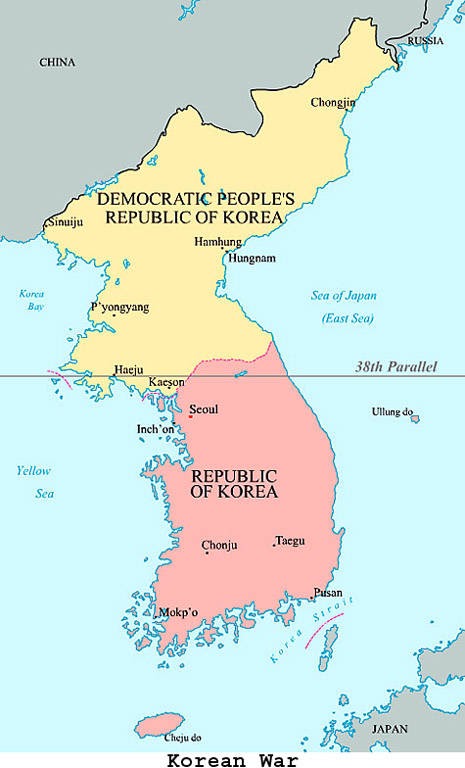International Relations
Violation of Armistice Agreement: UNC
- 01 Jun 2020
- 3 min read
Why in News
Recently, the United Nations Command (UNC) has found both North and South Korea guilty of violating the Korean Armistice Agreement 1953 due to gunfire along the Korean Demilitarised Zone (DMZ) between the two countries.
United Nations Command
- The USA led UNC is a unified command for the multinational military forces.
- It oversees affairs in the heavily fortified DMZ and ensures the terms of the armistice are being agreed upon by both North Korea and South Korea.
- It was established on 24th July 1950 in Tokyo, Japan.
Key Points
- The UNC led a multinational special investigation regarding the recent shootings at DMZ whose findings have not been accepted by South Korea owing to non-cooperation by North Korea in the investigations.
- Investigations had been unable to determine whether the shootings that originated from North Korea had been intentional.
- The shooting also violates the Pyongyang Joint Declaration of September 2018, an inter-Korean military agreement, which calls for reduced military tensions between the two countries.
Korean Armistice Agreement 1953
- The armistice agreement halted the Korean War of 1950-53 and established the Korean Demilitarized Zone (DMZ), the current border between the two nations.
- India has played a major role in the cease-fire agreement, strengthening India-South Korea relations.
- The DMZ runs close to the 38th parallel line.
- The armistice was signed on 27th July 1953 and was designed to ensure a complete cessation of hostilities and of all acts of armed force in Korea until a final peaceful settlement is achieved.
- It was signed by representatives of the UNC, Korean People’s Army (KPA) and the Chinese People’s Volunteer Army (PVA).
- South Korea did not sign the armistice as it refused to accept it.
- It was only a ceasefire and there was no official declaration of the end of the war so in the absence of an official peace treaty, as is the norm, the two countries officially remain at war.
- However, in December 1991, North and South Korea signed a pact agreeing to refrain from aggression.
Way Forward
- Both North and South Korea should work towards improving their relations and seek a potential resolution of the situation by bilateral talks and discussions possibly leading to a peace treaty which would end the Korean war formally. Denuclearisation of the Korean peninsula and USA removing its nuclear-capable forces from South Korea is a prerequisite for ensuring balance, peace, mutual cooperation and growth.





